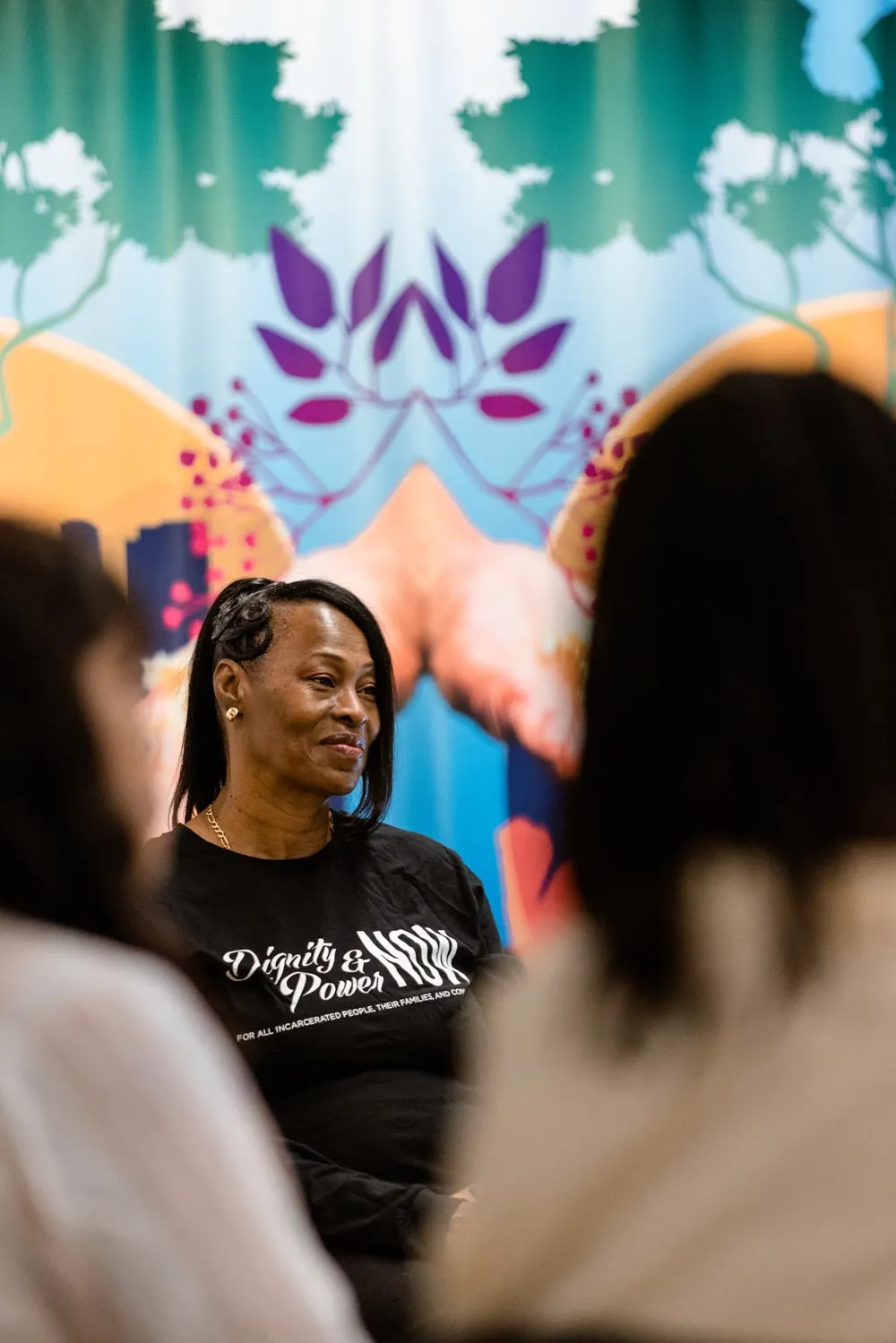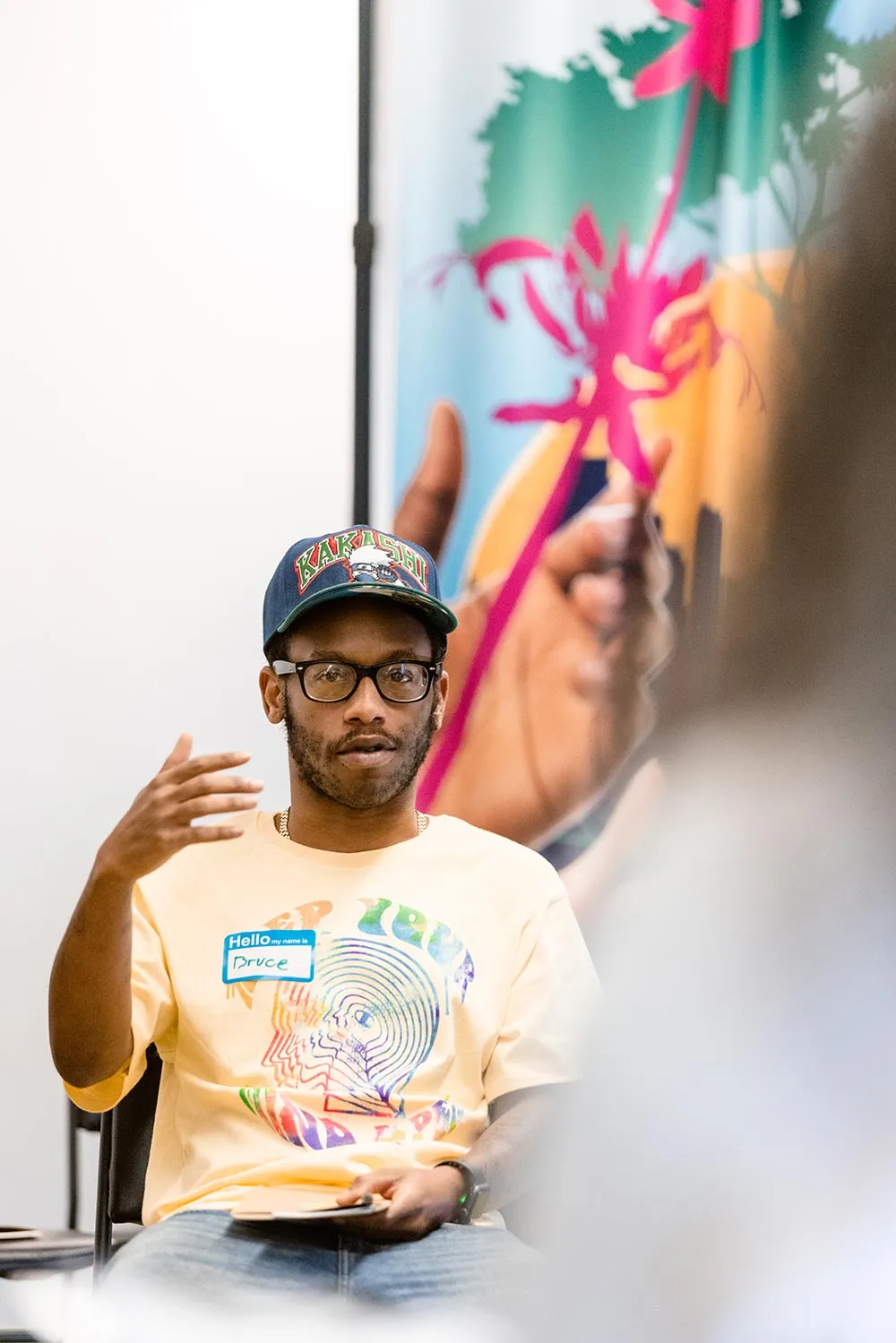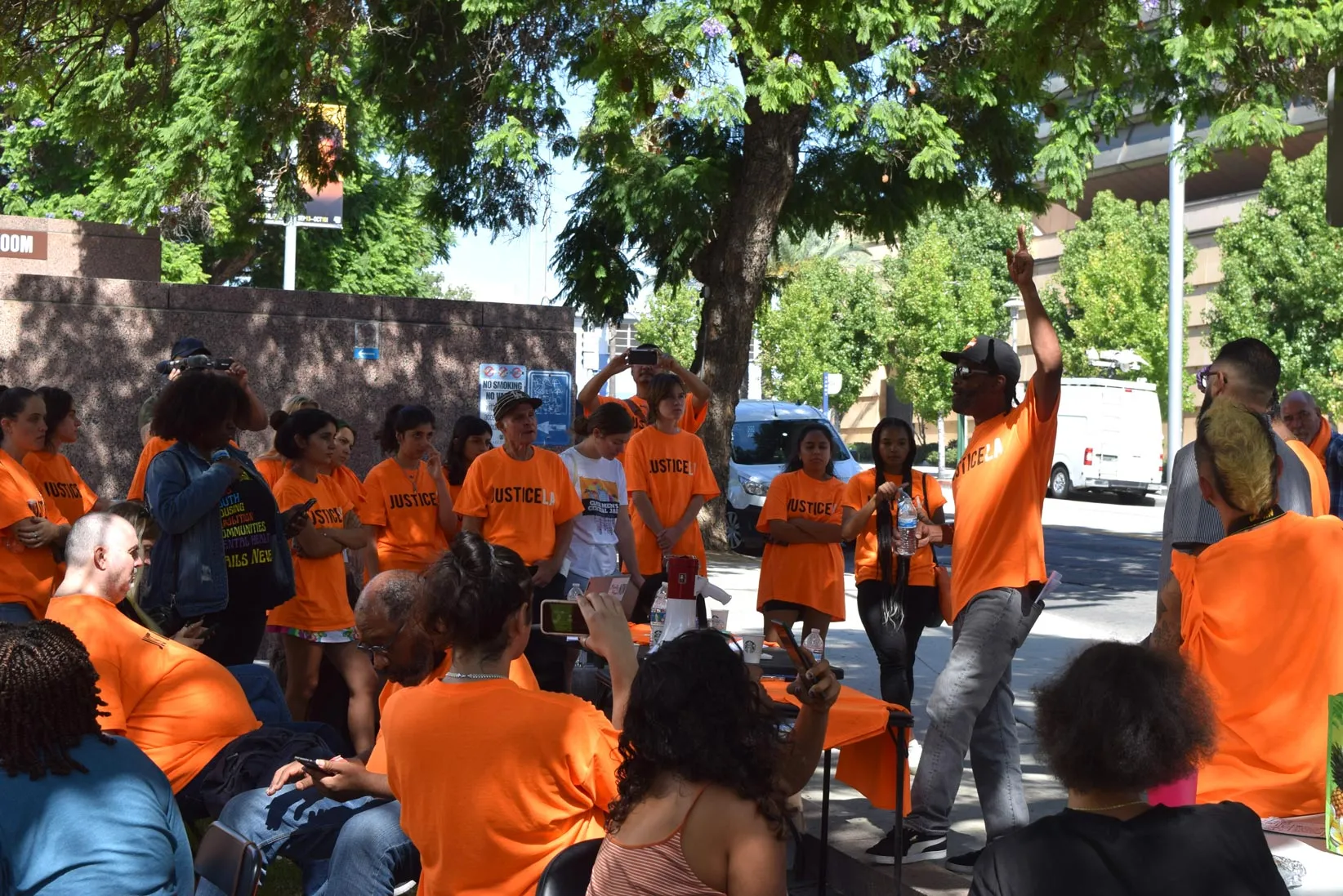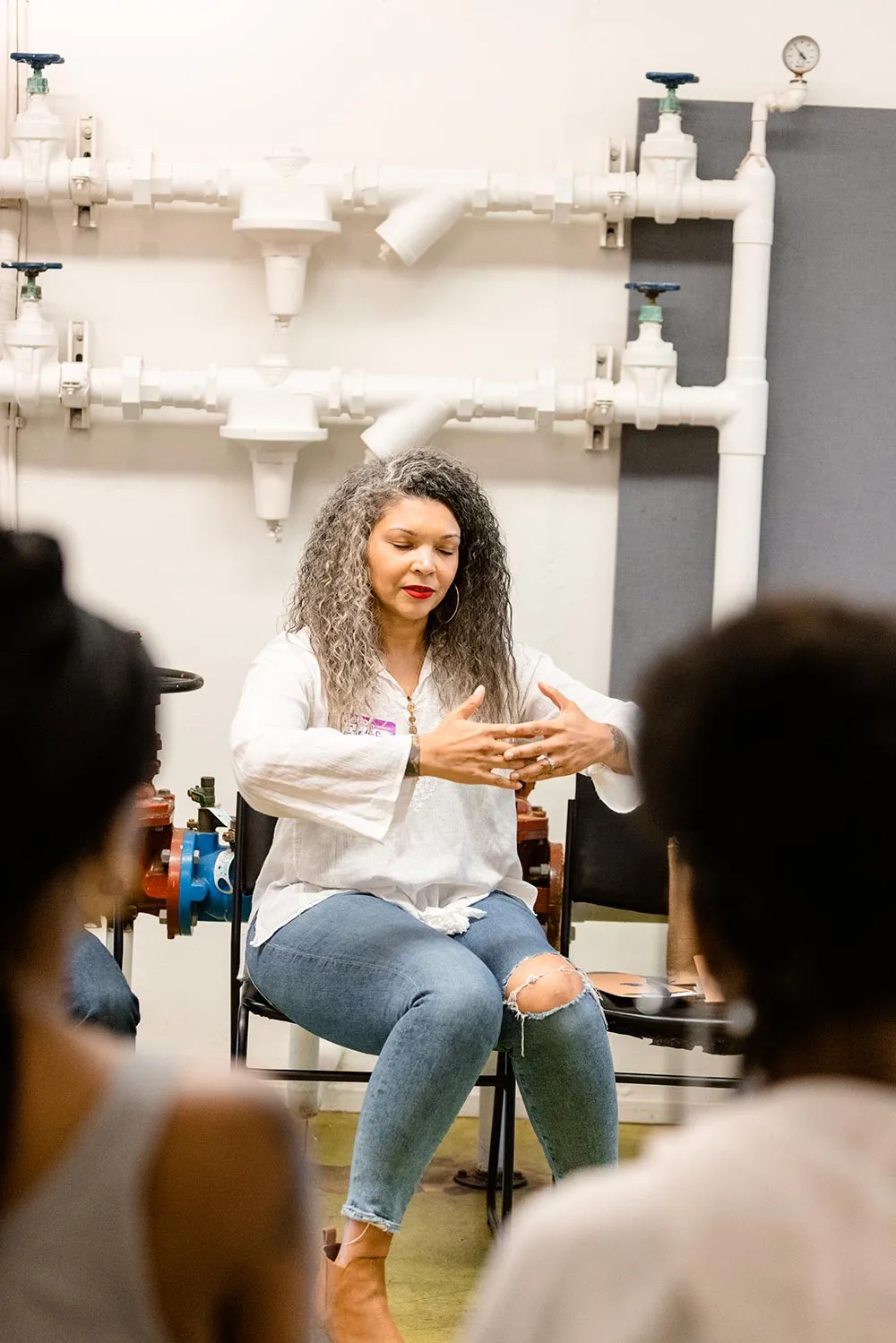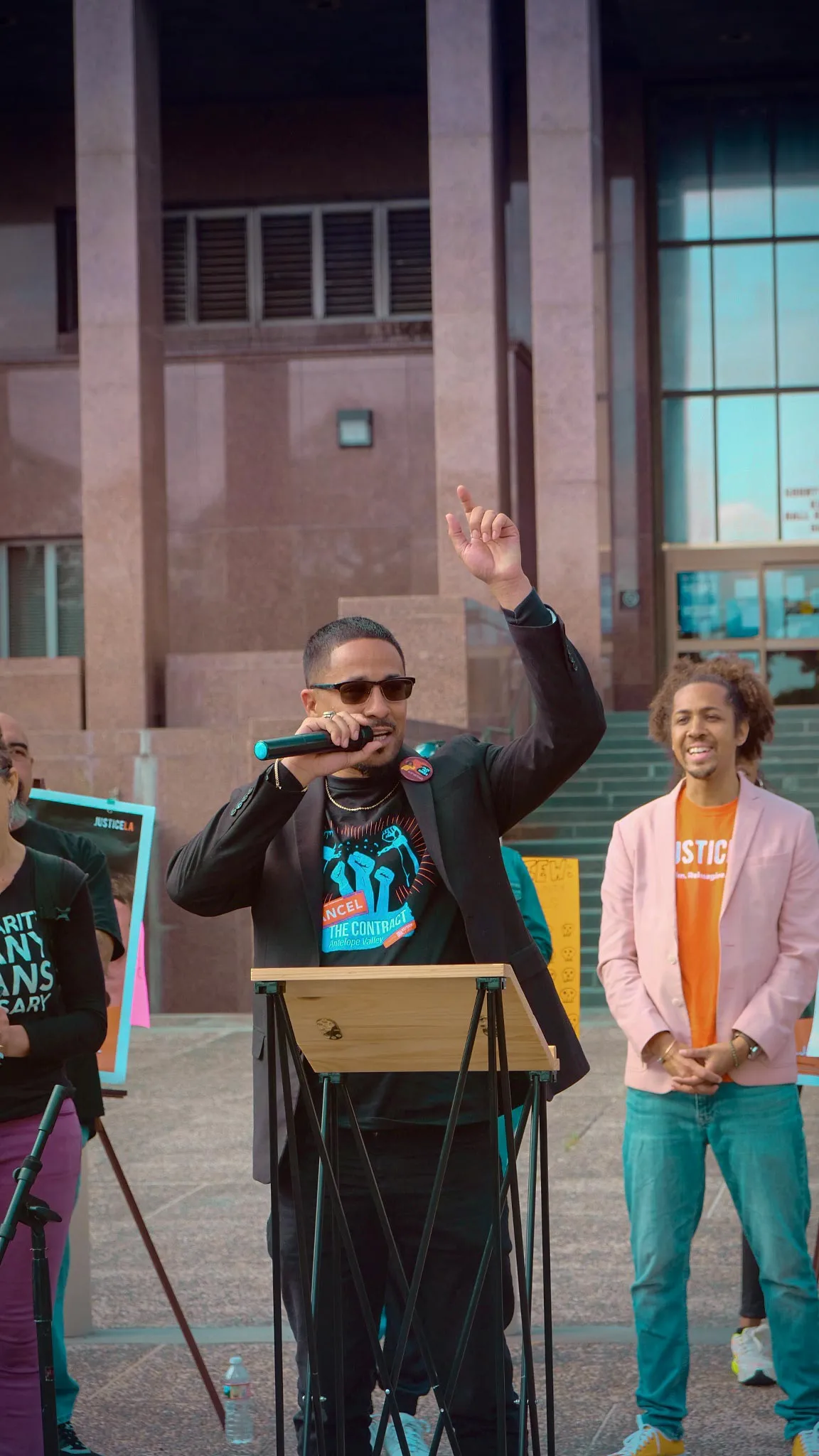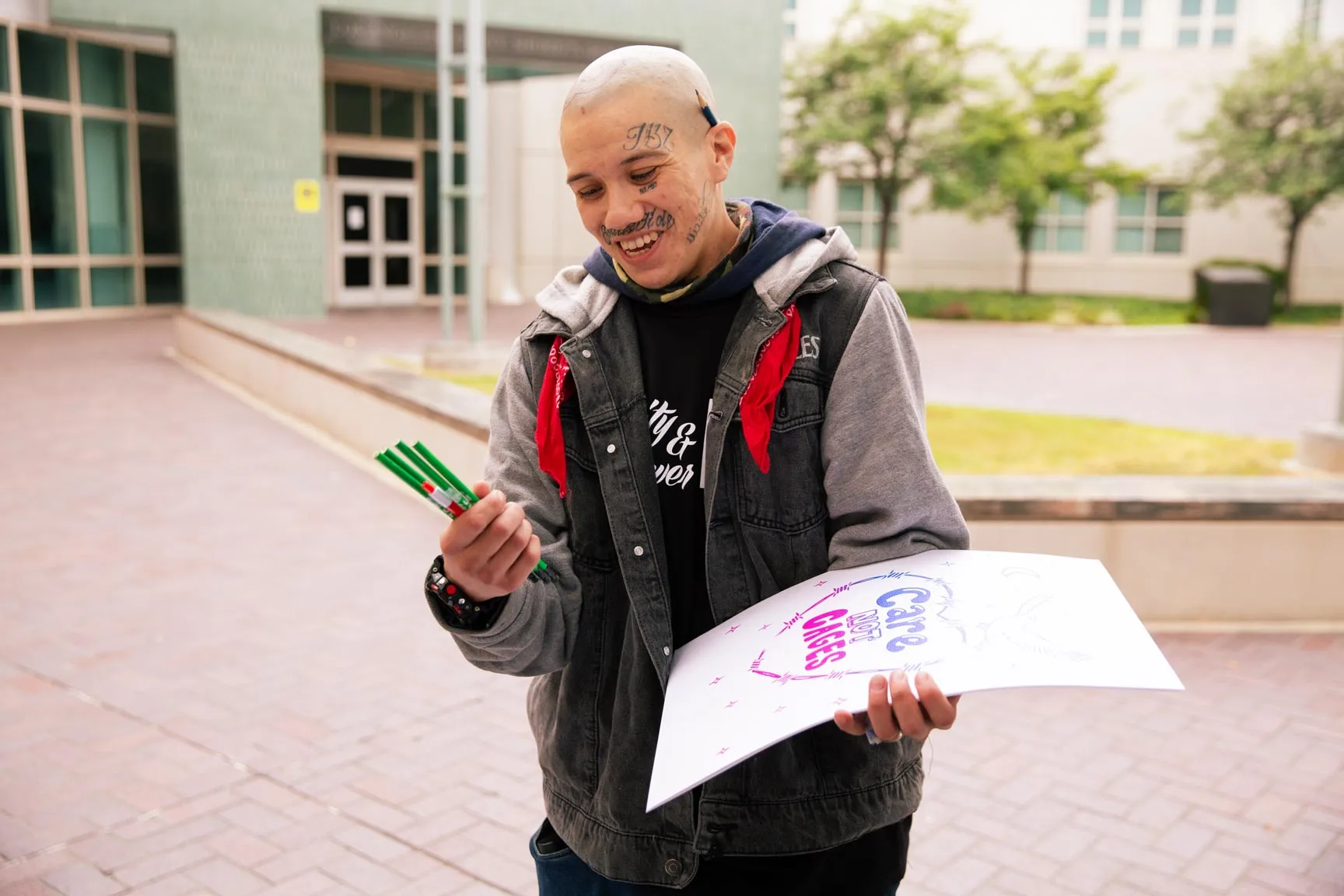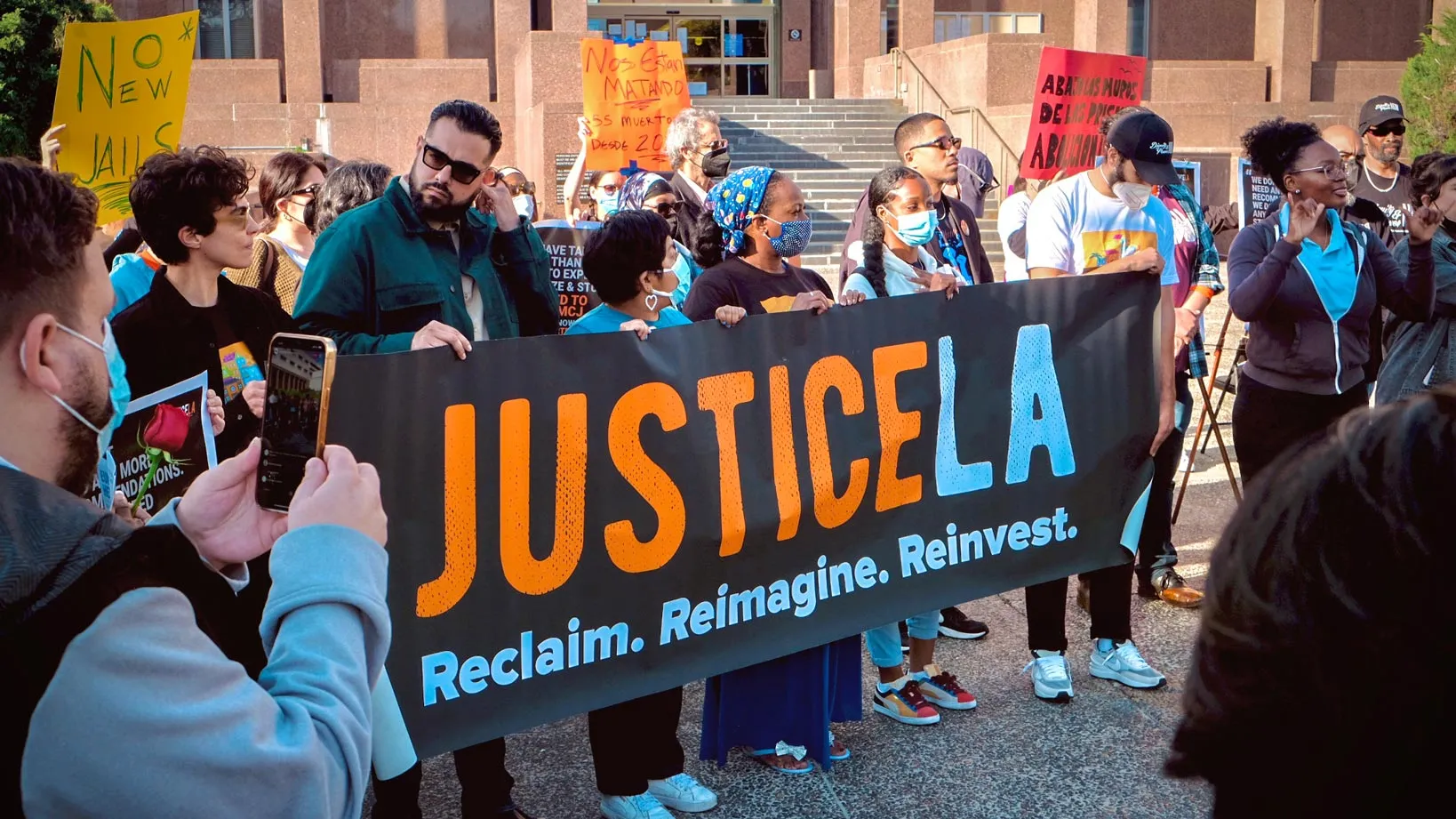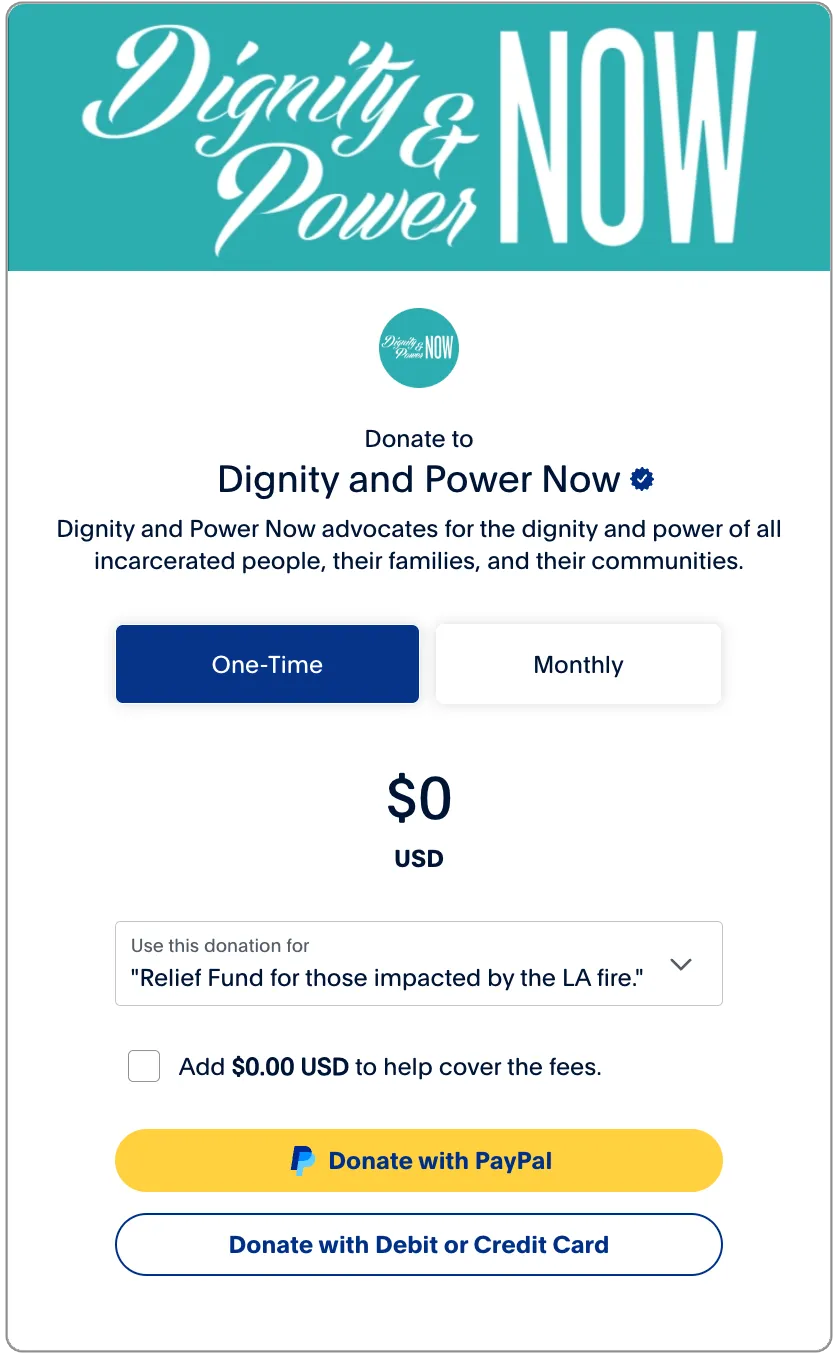Closing Men’s central jail
Los Angeles has the largest and most expensive jail system in the nation, and Men’s Central Jail (MCJ) houses the County’s highest inmate population.
The movement to close MCJ exemplifies the urgent need to defund and shut down carceral facilities, and invest in community-based alternatives to incarceration such as housing, healthcare, and substance use treatment programs. (Source: Million Dollar Hoods, LASD)
DPN co-leads the JusticeLA coalition, a powerful alliance of grassroots organizations, advocates, and directly impacted residents with the primary goal of closing MCJ. JusticeLA has not only stopped a 3.5 billion dollar jail expansion plan signed by the County, but led the Board of Supervisors to vote unanimously to close MCJ in 2020.
Despite that vote, the jail remains open, and over 260 people have died in LASD custody since that vote.
Carceral systems disproportionately affect society’s most vulnerable members: Black, Brown, and LGBTQ+ communities, and those navigating financial or mental health challenges. Dignity and Power Now is actively fighting this status quo through organizing, advocacy, and education.
We aim to stop the expansion of carceral systems and redirect the billions spent on jails and policing toward care-centered solutions that actually keep communities safe.
HISTORY OF THE FIGHT
WHERE WE ARE NOW
In 2017, we proved that grassroots organizing works by blocking a $3.5 billion jail expansion plan.
We are not just opposing harmful systems. We are building momentum for a future where care, housing, and health replace cages.
Closing MCJ without a replacement jail isn’t just about divesting from incarceration, it's about investing in community care.
Every year, we work to make sure that the county budget reflects the Board of Supervisors promises, and try to limit the always increasing law enforcement budget.

Hear from experts whose research powerfully shows the darkness of carceral systems and demands immediate action alongside us.
Terence Keel
“Our report shows that Los Angeles County Jails are some of the most lethal in the nation. There were 38 deaths inside the County Jail in 2009, one of the highest years on record before the COVID19 pandemic.
This is an average of two deaths a month. Most of these deaths involved Black and Latino men and the majority happened before standing trial. This is unacceptable. No one should die while in jail. Each day that Men’s Central Jail remains open is a day that someone is likely to die.”
Director for Young Women’s Free Center and formerly incarcerated pretrial speaking in CFC mini documentary Probation-Led Pretrial is Mass Incarceration
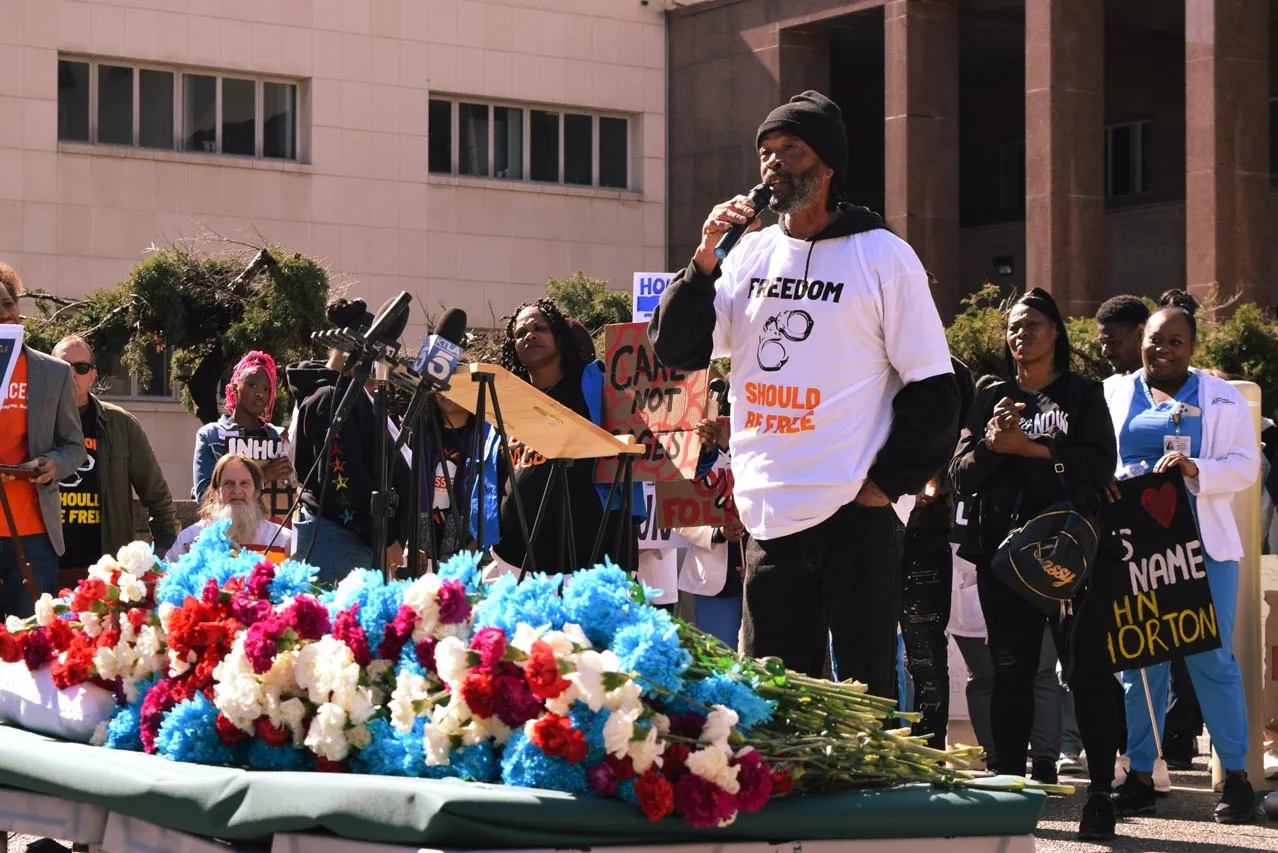
It’s Time to Close Men’s Central Jail—For Good.
We already have the plan, the research, and the community support to close MCJ and invest in real alternatives like mental health care, housing, and reentry services. Now, we need people power!
Join DPN and the JusticeLA coalition in demanding the County act with urgency. Our communities deserve care, not cages.

In 2024, DPN partnered with California Black Power Network, Essie Justice Group, JusticeLA, and Dignity and Power In Action and:
- Knocked on over 8,700 doors.
- Had over 2,138 conversations.
- Collected 1,213 pledge cards from residents stating that they want MCJ closed WITHOUT a replacement, and 10,000 community treatment beds.
TOGETHER, The JusticeLA Coalition has:
- Built a text action list of 1,000 engaged subscribers.
- Submitted thousands of letters to the BOS.
- In the summer of 2021, we mobilized 17,000 members of our community, and the Board of Supervisors voted unanimously to close Men’s Central Jail.
- Coordinated hundreds of public comments at county boards.
Fund the Fight to close MCJ
DPN has been fighting to close Men’s Central Jail and build a care-first future for LA County.
This work takes time, resources, and people power, and we can’t do it without you.
Your contribution directly supports grassroots organizing, policy advocacy, and community-driven solutions that prioritize healing over punishment. Help us hold the County accountable to their promises and create real safety for our communities.
-1.svg)



